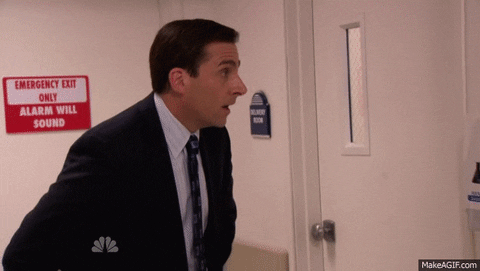A Trillion-Dollar Bank With Nazi Ties Wants to Tax You for Working From Home During a Pandemic
Be careful bankers, your corruption is showing again
Be careful bankers, your corruption is showing again
There was once a point in time when bankers were somewhat-contributive members of society. They took carefully-considered risks and loaned money to productive businesses so that those companies could feed, house, clothe, power, and light the world. In exchange for loaning real capital, the bankers received a modest profit in the form of interest payments.
Unbelievably, most people think that’s still how banks function.
The reality couldn’t be any further from the truth.
Today’s banks create digital credit out of thin air — taking zero personal risk — but expect to be paid back in real cash, plus interest. Bankers loan credit to even the most high-risk borrowers, while routinely stealing from their depositors and gambling their savings on unfathomably complex investment schemes. If borrowers default or depositor money disappears when their schemes fall apart, banks run to the government for a bailout — and they always get it, because they’ve stuffed the world’s governments with former bankers.
In the words of one financial writer:
“Banks treat us like criminal suspects, bury us in an absurd bureaucracy, and then charge us fees for the privilege of working with them.”
It’s about to get worse.
Now, to add blatant insult to systemic injury, bankers are now hoping to add a new weapon to their arsenal in their long-term assault on the public good: influencing tax policy.
Yes, banks have long been influencing tax policies around the globe, but it’s been almost exclusively a defensive move up until now: IE, lobbying to avoid paying taxes themselves. This new trick does the opposite — it goes on the offensive and wants to tax you.
Germany’s massive Deutsche Bank, which is one of the largest banks in the world, has released a proposal that would force work-from-homers to pay a 5% tax to “subsidize” people who can’t.
That’s right: a trillion-dollar bank wants you to pay a Work from Home Tax.
A WFH Tax… WTF?
I’ll be honest; the report reads so much like a parody that I checked the calendar to make sure it wasn’t April Fool’s Day. Deutsche Bank’s rationale — which certainly isn’t rational — goes as follows:
Once we have a vaccine and it’s safe to do so, everyone should return to work. Lots of “privileged” people might continue to work from home, and this “isn’t fair” to those who have to commute to the office. Accordingly, in order to “level the playing field and create more equality,” Deutsche wants governments to steal 5% of your salary.
This, from the bank that:
Was accused of being involved in an €850,000,000 tax evasion scandal involving CO2 emission certificates.
Has had more than 7,800 legal disputes and calculated €5,400,000,000 as litigation reserves.
Paid a $2,500,000,000 fine for its role in the Libor scandal and another $7,200,000,000 settlement after the 2008 market crash.
Was fined $425,000,000 for its role in laundering $10,000,000,000 out of Russia.
Paid a $150,000,000 penalty for their enabling relationship with child rapist Jeffrey Epstein.
And yet Deutsche thinks it has the moral right to lecture us on economic fairness?
Did I mention that Deutsche Bank helped finance Auschwitz?

But it’s an “affordable tax” they say.
The report argues that, since workers are “saving money on travel, food, and clothes by working remotely,” they can afford an extra 5% tax without hardship.
Using affordability rationale, we could counter-argue that since no one actually needs a mega-yacht or a private jet, perhaps bankers, too, could cough up an extra 5% in taxation… and that they should probably do so first.
Rather than finally allowing the middle class to retain a tiny margin of free cash flow which can be invested in the markets, spent on personal development, or simply just spent into the economy, one of the world’s richest banks would rather see your meager dollars be ransacked by the same politicians who continue to slash taxes on the rich and subsidize the planet-killing fossil fuels industry.
But don’t worry, they added insult to injury:
“Remote workers are contributing less to the infrastructure of the economy whilst still receiving its benefits,” the report explained.
Said one of the global leaders in tax havenry, a morally-bankrupt industry that avoids more than $189,000,000,000 in taxation each year.
In reality, work-from-homers are actually decreasing their costs to civilization, shrinking their carbon footprint, alleviating traffic, creating fewer infrastructure maintenance costs like road wear, and requiring less need for traffic cops, meter maids, and home securities systems. Oh, and less road rage. Plus more time with their kids instead of commuting. If anything, WFHers should get a bonus.
So What’s Actually Going On Here?
There is a massive conflict of interest hiding just below the surface. A recent Deutsche Bank survey found more than half of all workers want to continue working from home at least 2–3 days per week after the pandemic. I’m sure it’s just coincidental that Deutsche Bank just happens to be the top lender in US commercial real estate finance. Whoops.
Let’s assume for a minute that Deutsche holds mortgages on thousands of office complexes around the world. If demand for these buildings drops by half, we can expect their real estate values to fall accordingly.
This, of course, is terrible news for Deutsche.
BUT: If the bank can convince governments to force workers back to their lifeless cubicles via their time-killing commutes, Deutsche can effectively ensure full occupancy of their financed buildings. This will ensure their assets retain their full value. And let’s not forget the Deutsche is just one of thousands of banks with their eye on their commercial real estate portfolio.
What will it cost to ram through such a tax? Not much, maybe a few hundred million tops. Probably far less in nations that are already bank-captured. Deutsche potentially has tens of billions of real estate value at stake, so their investment is near-nil compared to the potential losses. It’s smart money.
There’s a second scam at play, too.
Just because Andrew Yang lost, doesn’t mean the Universal Basic Income movement stopped growing. It has boosters on both sides of the political aisle. It’s going to be a mathematical necessity as automation takes 40% of our jobs in the next 10-15 years.
The report makes it very clear that “the $48 billion raised could pay for a $1,500 grant to the 29 million workers who cannot work from home and earn under $30,000 a year.”
Did you catch that? Rather than making the ultra-rich pay for UBI as proposed by folks like Bernie Sanders, the Deutsche Bank proposal effectively makes the middle class pay for their own UBI without any cost to the wealthiest entities on the planet. Well played, DB.
What Can We Do to Stop Them?
Probably nothing. Like democracy, there’s a strong chance we’ve already reached escape velocity and have no way to turn the ship around. Don’t expect Joe Biden to fix the problem any more than Obama did when he declined the opportunity of a lifetime to radically reform banking after the 2008 crash. In the previous election cycle, Elizabeth Warren campaigned on a platform of banking reform and got shut down faster than Burger King during Covid.
If this new proposal tells us anything, it’s that bankers are finally growing bolder, or at least more comfortable, with no longer hiding what critics knew all along: that the big banks set the lion share of global economic policy, not the people.
The ultimate reality is the Deutsche Bank is right: A 5% WFH tax could raise $48 billion in taxes per year in the U.S. alone. It’s free money that politicians will be only too happy to waste on your behalf.
What does this mean for entrepreneurs?
It’s unclear how the corrupt WFH tax would apply to those of us who were already working from home prior to the pandemic. If it does apply to self-employed entrepreneurs, we’ll have to call a national tax strike and refuse to pay it.
Perhaps we can negotiate a trade: we’ll all pay a WFH tax… right after all the trillion-dollar banks pay a financial service tax as decided by a democratic referendum. If that’s not to their liking, then perhaps it’s time to right-size the financial services sector altogether?
The problem of oversized banking is no less pronounced in Europe, where U.K. citizens have lost a cumulative £4.5 trillion in income (that’s $6,000,000,000,000 USD — over ninety grand per man, woman, and child) between 1995 and 2015 due to their financial sector’s bloated size.
Banking rules the world, whether we like it or not. My guess is that, should this WFH tax come into effect, a whole lot more people aren’t going to like the financial sector, which could create massive opportunities for non-bank-captured politicians to campaign and actually win elections on a platform of meaningful banking reform.
In Conclusion
Money is simply a representation of power. If there’s one thing the Left and Right can certainly agree on, it’s that bankers should stay the hell out of tax policy, especially when it weaponizes governments against the public good for private gain. It’s anti-conservative, anti-liberal, anti-fairness, and anti-democratic.
Proposals like a WFH tax also fly in the face of the so-call “free market” that bankers usually like to espouse. So let’s call this proposal what it really is: Corporatism. Crony capitalism. Economic corruption.
We must end it before it ends us.
Stay informed. Follow on Medium or subscribe by email.
New stories by Jared you might like:
People Will Barely Remember the Coronavirus in 30 Years
They will have far bigger problems with which to copemedium.com
Facebook Is Dead (It Just Doesn’t Know It Yet)
The $750+ billion company still has options, but none end well.medium.com
Want to Be Happier? Repeat This Ancient Four-Word Phrase Every Single Day
A centuries-old monastic practice could be the key to happinessmedium.com
How to Take Back Control of Your Life from Addictive Internet Algorithms
Practices and apps you can use to reclaim your attention and privacy — from simple to radical, and everything in…medium.com
Level Up! 50 Rules and Tools for a Healthier, Wealthier, Wiser Life
My new ebook is available now for free.jaredabrock.medium.com





